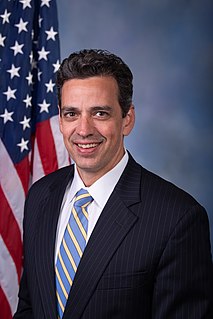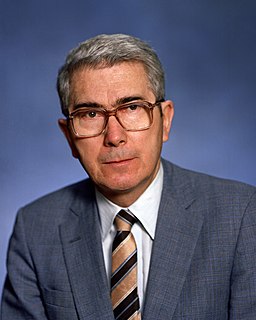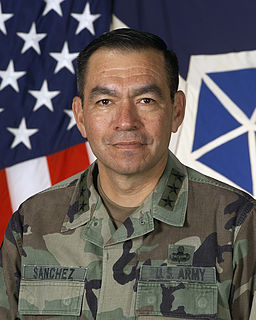A Quote by John F. Kerry
The Reagan Administration has no rational plan for our military. Instead, it acts on misinformed assumptions about the strength of the Soviet military and a presumed 'window of vulnerability,' which we now know not to exist.
Related Quotes
The American financial and military commitment really only kicks in with Korea. Not that Korea was the real game for the Americans; their real fear was that this was just the prelude to a second Korea in Germany. We now know from the Soviet archives that the last thing Stalin was going to do was start a war in Central Europe. The Americans didn't know that, and it was the fear that he might which transformed NATO from a sort of shell game into a real military alliance. That total commitment basically transformed the Marshal Plan into military aid.
Let me be clear: I'm a believer in a robust military, which is essential for backing up diplomacy. But the implication is that we need a balanced tool chest of diplomatic and military tools alike. Instead, we have a billionaire military and a pauper diplomacy. The U.S. military now has more people in its marching bands than the State Department has in its foreign service - and that's preposterous.
We all know Reagan's legacy, from the Iran-Contra affair to the funding of the Nicaraguan military in which over 200,000 people died. The groundwork for the move steadily to the right happened with the Reagan administration. People want to elevate him to some mythic level; they have their own reason for doing that.
Instead of ending U.S. military aid to the 23rd wealthiest country to use for its consistent violations of international law and human rights, we see the Obama administration escalating the annual amount of aid, so that Israel will now start each year with almost $4 billion, with $3.8 billion a year of military aid coming from our tax money to support its military, without any restrictions on how it makes - how it uses that money, what weapons in the U.S. it's able to buy.
I intend to vote against authorizing the president to use military force in Syria. The Obama Administration has not provided a clear or convincing strategy for inserting our military into the conflict. I am also deeply concerned about the extent to which al-Qaeda-affiliated terrorists are involved in the rebellion.
Now all of us deplore this vast military spending. Yet, in the face of the Soviet attitude, we realize its necessity. Whatever the cost, America will keep itself secure. But in the process we must not, by our own hand, destroy or distort the American system. This we could do by useless overspending. I know one sure way to overspend. That is by overindulging sentimental attachments to outmoded military machines and concepts.
In the aftermath of the terrorist attacks of September 11, 2001, I watched helplessly as the Bush administration led America into a strategic blunder of historic proportions. It became painfully obvious that the executive branch of our government did not trust its military. It relied instead on a neoconservative ideology developed by men and women with little, if any, military experience. Some senior military leaders did not challenge civilian decision makers at the appropriate times, and the courageous few who did take a stand were subsequently forced out of the service.































